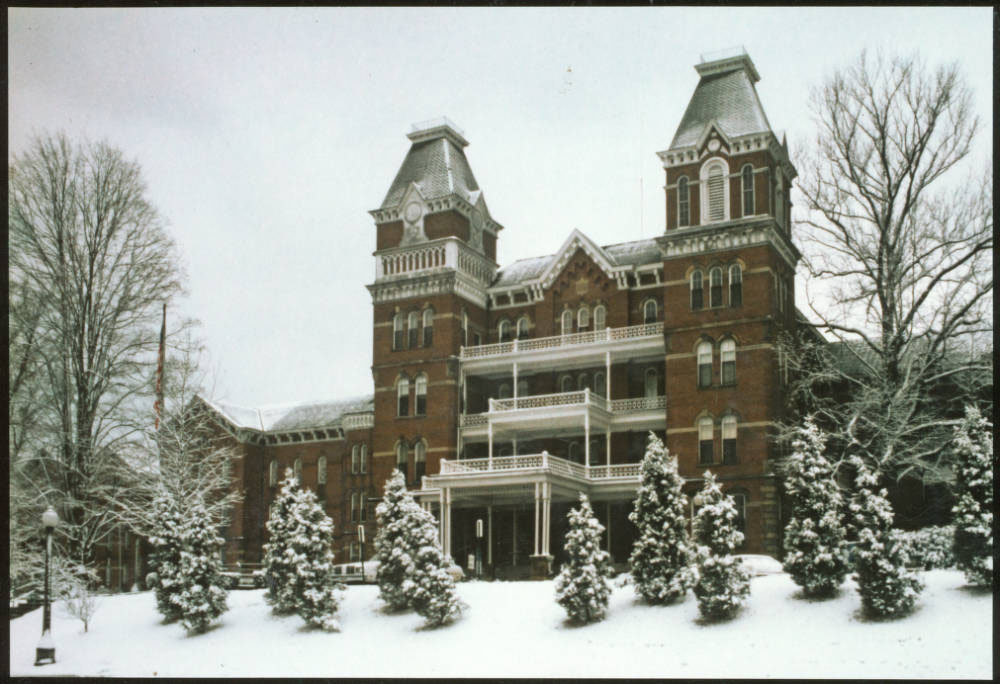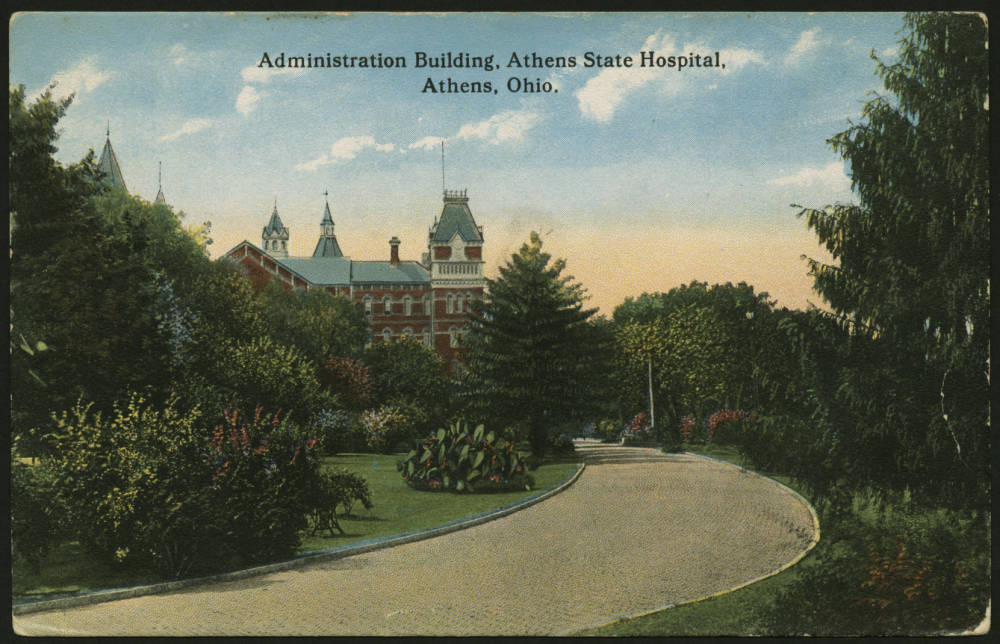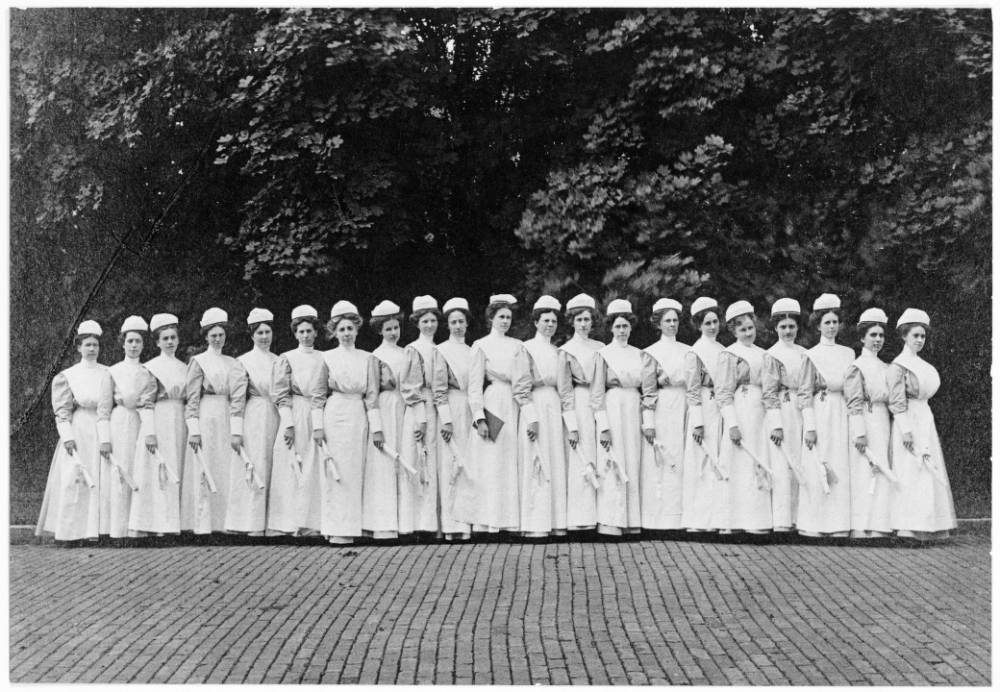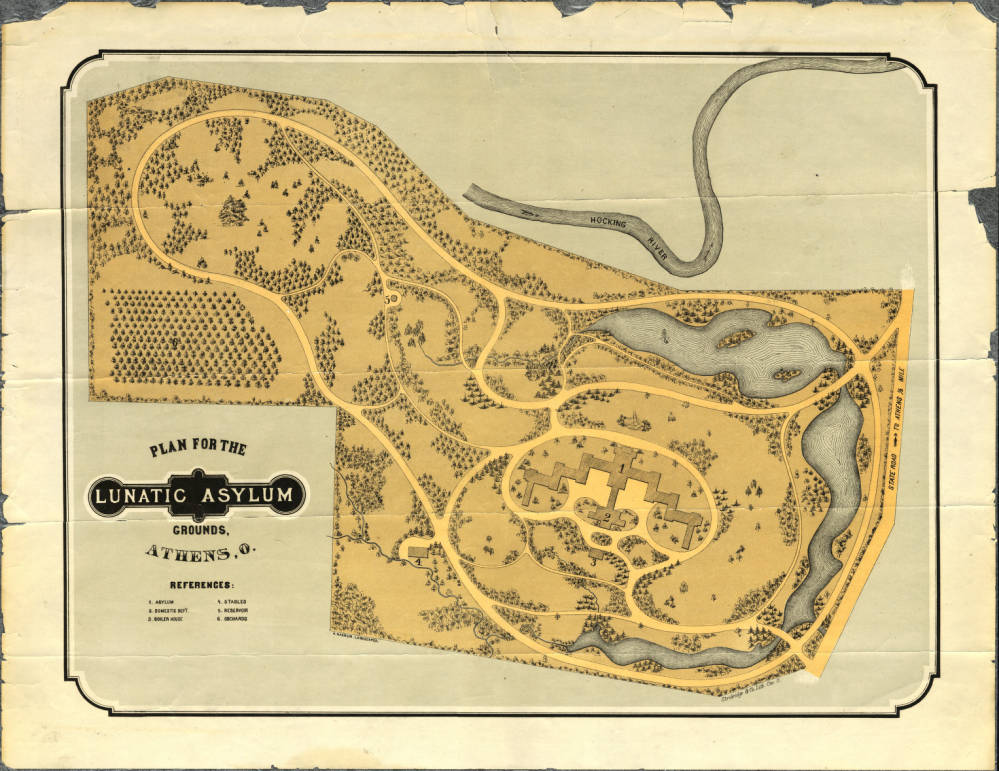The following blog post was written by Collette McDonough, (Society of Ohio Archivists Archives and Outreach Committee Chair, and Archivist and Library Manager at the Kettering Foundation) in celebration of National Archives month which is every October. It was originally published on the Society of Ohio Archivists blog.

Announcing a New Series
The Society of Ohio Archivists Advocacy and Outreach Committee wanted to celebrate Archives Month in a new way, so we will be featuring a handful of archives in a series of posts we are calling Archival Spotlights. Since the Archives Month poster’s theme was “Ohio’s Healthcare Workers: The True Heart of it All,” we felt it a good idea to feature archives that focus on healthcare or have interesting collections related to healthcare. The first archive to be featured is the Mahn Center for Archives and Special Collections, focusing on their Athens Mental Health Center collection.
About the Mahn Center, and the Athens Mental Health Center Collection
By A&O Committee Chair Collette McDonough, Kettering Foundation.
The Robert E. and Jean R. Mahn Center for Archives and Special Collections, part of Ohio University Libraries in Athens, Ohio, contains the Ohio University Archives, Rare Books, Manuscript Collections, and the Documentary Photography Archive. The Mahn Center’s mission “is to support the education, research, and creative endeavors of Ohio University, or broad community of researcher, and anyone with an interest in the preservation of cultural heritage.” Ohio University is in the rolling foothills of Southeast Ohio and is a center for arts and culture in the area.
Athens is renowned for what is now known as The Ridges. Originally called the Athens Lunatic Asylum and later named the Athens State Hospital, The Ridges opened in 1874. The Athens Mental Health Center collection documents its evolution.
This fold-out map from 1872 was pasted into some copies of the first annual report of the Athens Lunatic Asylum. The construction of the campus started in 1868. The grounds were designed by Herman Haerlin, who was also the landscape architect of the Oval at The Ohio University. The architect was Levi T. Scofield.
This colored post card, first printed in 1913, shows the picturesque grounds that attracted many visitors from the local Athens community and Ohio University. The grounds were designed to be part of the “moral treatment” philosophy of the late 19th century which emphasized natural light, free airflow, and peaceful surroundings in patients’ rehabilitation.

“Activity once described as ‘meaningful occupation’ in the “moral treatment” model promoted by mental health advocate Thomas Story Kirkbride (1809–1883)—lots of sun and air, kitchen work, milking cows, picking fruit, mending shirts—was considered key in ‘training the mind’ all the way up to the middle of the twentieth century.” (HUMANITIES, Summer 2018)
That is why the facility was so sprawling and included so many outbuildings. It wasn’t until 1973 that these patients were compensated for their labor with minimum wages.

The state-run mental facility even had its own nursing program. Seen here is the class of 1912 holding their rolled diplomas.
Interview with Greta Suiter
Greta Suiter is the Manuscripts Archivist at the Mahn Center for Archives and Special Collections. She took some time to answer some questions about her job at Ohio University for the Advocacy and Outreach Committee (A&O).
A&O: What do you like most about Ohio University?
Greta: I like that it has a long history dating back to 1804 and how Athens is a quintessential college town. I also love that it has a strong journalism program. This means that Athens is quite well documented, and there is a lot of information exchange, content creation, and interest in how the past connects with the present.
A&O: What is your favorite collection in your archive? Why?
Greta: I am new to Ohio, so I have been enjoying getting to know Athens, Southeast Ohio, and Appalachia through the collections. There are a number of family and business collections from the 1800s and an interesting collection of Civil War letters. I love hearing directly from the people back then, in their own writing about what their life was like.
A&O: What do you find the most intriguing about the records for the site now known as the Ridges?
Greta: That they cover the whole time period of the 1870s to the 1980s and we can see the progression of mental health care change over time, and the fate of the buildings and grounds change over time.
Browse the Athens Mental Health Center collection in Ohio University Libraries Digital Archives. Other records on the Ridges can be found at the Southeast Ohio History Center, Ohio History Connection, and the State Library of Ohio.
Questions? Contact A&O Committee Chair Collette McDonough.
